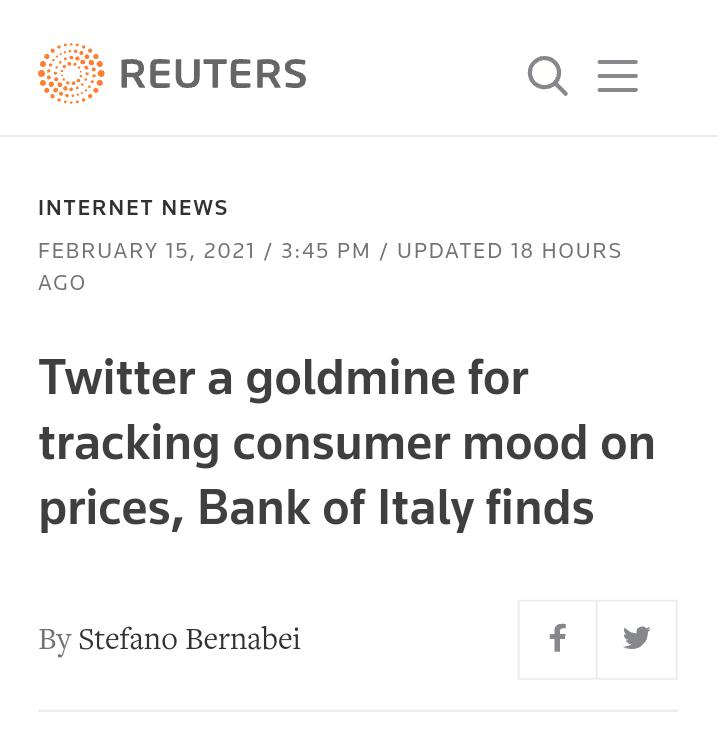Researchers found their indicators, based on millions of tweets, not only tallied with final inflation read-outs and existing measures of price expectations by Italy’s national statistics office, financial markets, and other forecasters but were also in real-time and provided more granular detail.
“The results suggest that Twitter can be a new timely source for devising a method to elicit beliefs,” the authors of the 107-page study said, adding they believed the Italy-focused research could be replicated elsewhere. “The rationale for focusing on pure raw tweets count is the intuitive notion that the more people talk about something, the larger is the probability it reflects their opinion and that their view can influence other people’s expectations,” it said.
Read the full article on Reuters

